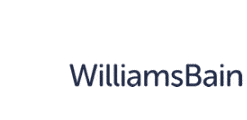Busy CEOs may not be able to add more hours to the day or create a copy of themselves, but hiring a chief of staff (CoS) could be the next-best answer. Experienced CoS Les Murray explains how this still largely under-utilised role can lighten the load and significantly accelerate performance.

For many, a chief of staff (CoS) conjures images of the White House and a wily political operator keeping the wheels turning while protecting their boss.
In a business context, a CoS is not too dissimilar. They act as the CEO’s right hand person and confidante, helping to shape strategy, set a clear path for project execution and bring departments into line. In short, they do a lot of heavy lifting, creating a process-driven, performance-focused culture that keeps everyone on course, while freeing up the CEO to focus on the bigger picture.
“In my experience, a CoS adds real value in those companies, where the pace of change means the CEO is overstretched,” says Les. “For example, I was brought into one company where there was an existential threat to the future of the business. The CEO was spending most of their time dealing with that challenge, so they needed someone to support them to manage the rest of the day-to-day business.”
A trusted partner
The ideal CoS sits with the senior leadership team, acts as the CEO’s recognised eyes and ears and complements their strengths and skills. Every visionary CEO needs a rigorous integrator, working diligently on the detail, driving progress and focusing on whole-enterprise performance – and that’s where a CoS can be so indispensable. They can, says Les, cut through the endless discussions, secure commitments from functional heads and, to be blunt, get stuff done.
“They can also help prevent the CEO burning out,” he adds. “If you’re running a business that’s experiencing planned or forced change, it’s impossible to be ‘on’ all the time – energy levels will take a dip and then people start to wonder what’s going on. So having a trusted tag-team partner to carry some of that load makes sense.”
In Les’s experience, a CoS works best when he or she comes in for 12 to 18 months to focus on major change which may include post-merger integration or any other high-profile programme demanding serious focus and company-wide buy-in. By working for a predetermined period, a CoS doesn’t have to consider their long-term future with the company, giving them the freedom to make bold, tough and necessary decisions – especially those impacting other senior leaders in the organisation – to secure results.
That’s exactly what Les has achieved over the last few years. Operating primarily for fast-growing businesses in the engineering, science and technical industries, he’s helped guide those companies through complex projects requiring lengthy and careful stakeholder management, as well as leveraging his commercial experience to implement processes for sales teams or harmonise discontinuities between functions.
One CEO told Les that by having him as his CoS, the company jumped two years ahead of where it would have been without him.
Wearing many hats
Because of the close working relationship between CEO and CoS, personality as well as experience is an important facet when considering hiring a CoS. Just as critical – if not more so – is the relationship between the CoS and other senior leaders and stakeholders. Without a direct team under them, a CoS operates by influence and often needs to diplomatically manage conflict, particularly when overseeing a sensitive change programme.
This is where the role of CoS in business comes close to its political cousin. A CoS can act as gatekeeper, sense-checking ideas and trouble-shooting problems before they reach the CEO’s desk. “If I was happy with an idea,” says Les, “then the SLT would know the boss would be happy.”
A CoS, then, can be many things: strategist, consultant, leader, integrator, programme director, gatekeeper, diplomat, advisor and more. With such versatility, it’s a wonder more CEOs don’t have one.
Key takeaways
- Chiefs of staff can create and oversee delivery of transformative projects.
- They free up overstretched CEOs to focus on longer-term strategies.
- A CoS is ideal for businesses experiencing planned or forced change, a post-merger integration or other transformation project requiring dedicated leadership.
Chief of Staff Recruitment
To discuss in confidence how Williams Bain can support your organisation’s growth, please contact us.
Les Murray
Les Murray is an experienced chief of staff who previously spent 20 years in retail marketing as a consultant and in senior management positions for large retailers. He spent a further decade in operational restructuring before using his expertise to support dynamic companies focused on their growth agenda.
Williams Bain
Williams Bain is a specialist supplier of executive interim managers and independent consultants who deliver planned for forced transformation for clients all over the world.
